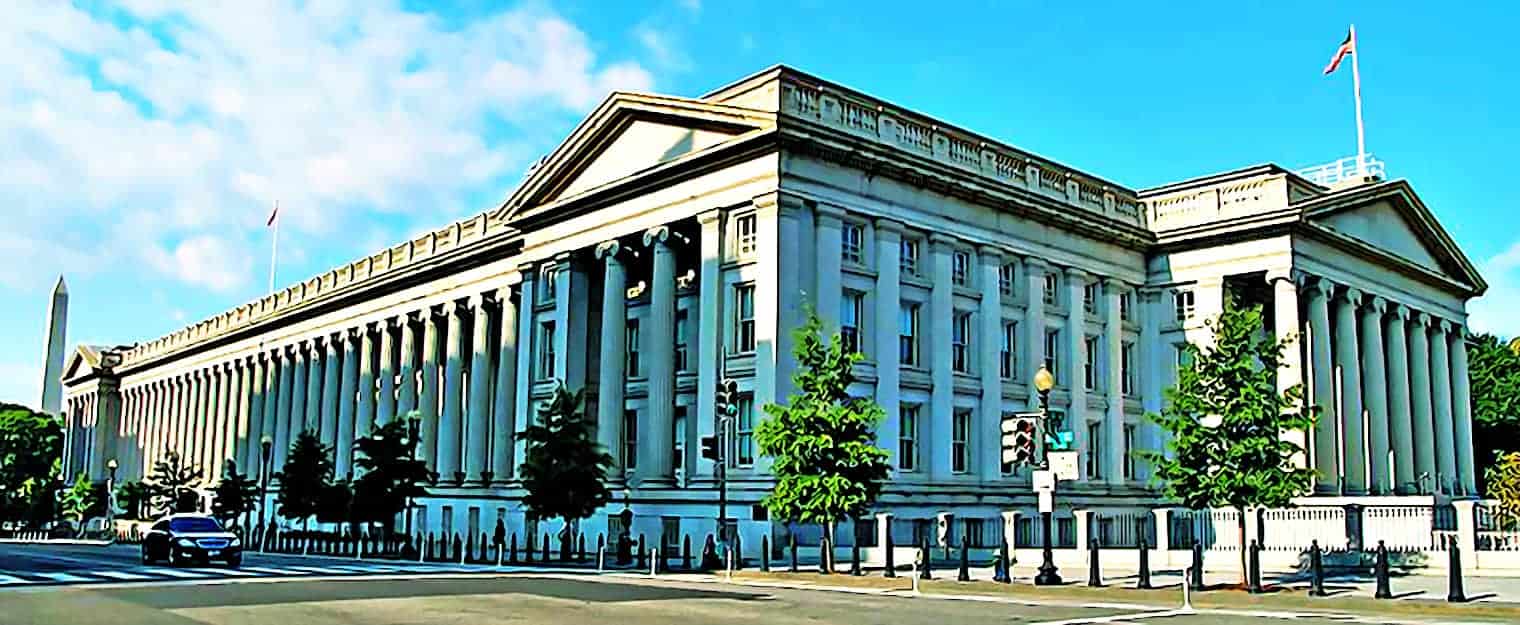With the new year, new government crypto rules and regulation are coming down the pipe, from a checkbox for crypto purchases on the IRS’s personal tax return form, to new know-your-customer (KYC) requirements from the Financial Crimes Enforcement Network, to guidance from the Office of the Comptroller of Currency, the nation’s chief banking regulator, to give federally chartered banks permission to act as nodes for blockchain networks and setting them up for compliance with the proposed STABLE Act.
Earlier this week, the U.S. Treasury’s Office of the Comptroller of the Currency (OCC) released a letter clarifying the authority of banks to participate in independent node verification networks and to use stablecoins for payment activities.
“Our letter removes any legal uncertainty about the authority of banks to connect to blockchains as validator nodes and thereby transact stablecoin payments on behalf of customers who are increasingly demanding the speed, efficiency, interoperability, and low cost associated with these products,” said Brian Brooks, the acting Comptroller of Currency, in a statement.
Three U.S. House Democrats unveiled the STABLE Act last month. The proposed legislation aims to bring a strict regulatory framework to the US$25 billion stablecoin industry, which nearly doubled in value during the third quarter. Some interpretations of the proposed legislation say that it would require any node that processes stablecoin transactions to have a bank charter or else face criminal liability.
Shining light on uncertain legislation
In a recent interview with Forkast.News, blockchain investor, author and corporate advisor Alex Tapscott called the STABLE Act “deeply troubling,” pointing out the difficulty of nodes differentiating between stablecoin transactions and everything else on the Ethereum (or other) blockchains.
See related article: Joe Lubin and other prominent crypto leaders decry the STABLE Act
“I think policymakers sometimes don’t have access to all the facts,” Tapscott said. “They don’t really understand what they’re talking about when it comes to deep technology.”
But technology lawyer Preston Bryne believes individual users would not face liability. Legal provisions for “information content providers” such as servers, he said, would likely grant an immunity from liability for the actions of their users.
However, with the OCC’s clarification, the stage is set for ownership of many nodes to migrate over to licensed financial institutions.
Keeping the sector competitive
According to the OCC’s guidance letter, banks face competition to move funds faster, and blockchain technology and other distributed ledgers could provide the missing piece of the solution puzzle.
See related article: What are the SEC and OCC’s thoughts on digital asset regulations?
“Banks have long used cashiers’ checks, travelers’ checks, and other bearer instruments as a means of facilitating cashless payments,” the OCC said in its statement.
Brooks added: “While governments in other countries have built real-time payments systems, the United States has relied on our innovation sector to deliver real-time payments technologies.”
The OCC and FinCEN can disagree on crypto rules
While the OCC has taken the approach to leverage the cryptocurrency industry to improve the efficiency of the banking system, the Treasury’s Financial Crimes Enforcement Network (FinCEN) has proposed aggressive reporting rules, which saw vocal pushback from the industry and other stakeholders. The proposed rules would require crypto exchanges to report transactions if they exceed a certain dollar amount, in a similar manner to banks with large wire transfers. Providers of crypto wallets would also be required to keep know-your-customer (KYC) records.
At the time, Coinbase CEO Brian Armstrong tweeted that this would be a “reasonable idea on the surface, but it is a bad idea in practice.”
“This would effectively create a walled garden for crypto financial services in the U.S., cutting us off from innovation happening in the rest of the world,” he said.
Can’t escape taxes
Death and taxes are the two things that nobody can escape, so the saying goes, and the U.S. Internal Revenue Service is now making it clear it wants to know just how much cryptocurrency you are trading.
According to an IRS draft document, the U.S. personal tax return form, the 1040, will now contain a section asking if the filer has engaged in an “acquisition or disposition of a financial interest in virtual currency” during the past year.
Buying crypto with dollars isn’t a taxable event, but selling it and making a profit is. It looks like the IRS — which collects data from crypto exchanges and blockchain surveillance software — wants to figure out the capital gains Americans are making from crypto compared to other financial instruments and make sure taxes are paid.




